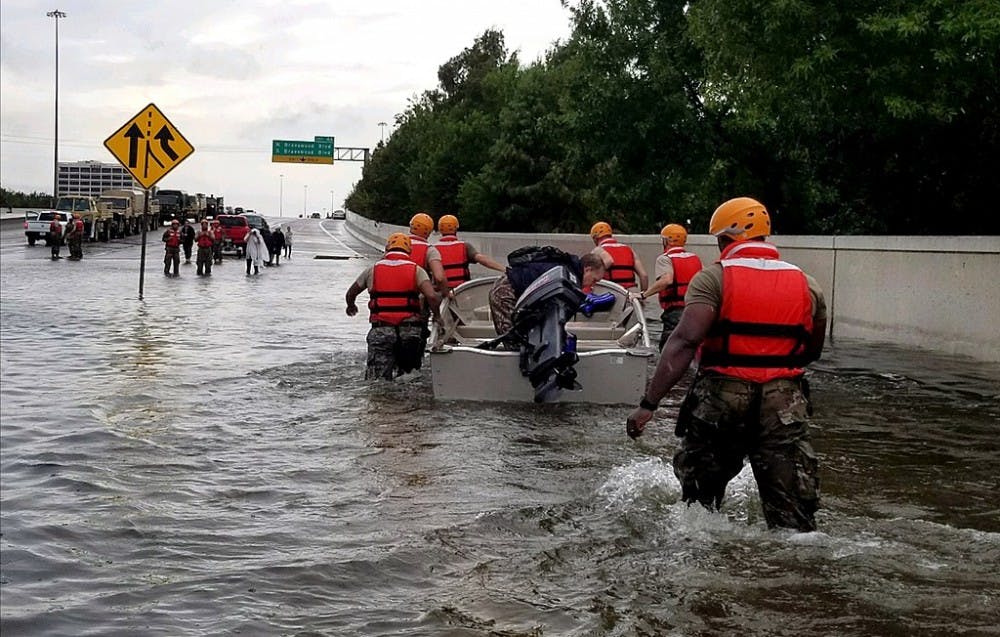On September 15, the Public Interest Investment Advisory Committee (PIIAC) released their recommendations for fossil fuel divestment. Overall, the recommendation was a complete success for student activists (specifically the group Refuel Our Future), with PIIAC recommending full divestment of the University’s endowment from fossil fuel companies.
The proposals acknowledged the counter-arguments to divestment (empty gesture, financially harmful, slippery slope to further divestment campaigns) and then explained why these counter arguments were wrong or were outweighed by the positives. Student involvement and opinion weighed heavily in the report, and student activists on campus should be giving themselves a round of applause as well as gearing up for the campaign to get the board to vote for full divestment.
However, I do have one quibble with an otherwise well done proposal: the focus on “sustainable capitalism” or “saving capitalism from itself.” I do not expect anything coming from the Hopkins administration to be radical, but that does not mean we cannot further discuss the issues in a radical framework and push for further radical changes to address climate change.
I believe that climate change is not a crisis of unsustainable capitalism but of capitalism itself. Focusing on reforming capitalism as opposed to abolishing it will only doom the human species to suffering and possible extinction.
The past few weeks of hurricanes devastating the Caribbean and floods ravaging Nepal, Bangladesh and India (the death toll is at 1,200) is only a preview of what is to come if we do not adapt to climate change (and of course racialized, colonized and impoverished people are feeling the worst effects while contributing the least to global warming).
The argument that capitalism will solve climate change generally says that companies will have a motivation to save the planet in order to continue making profit. But this has already been proven false by the direction we are heading in.
The U.N. Intergovernmental Panel on Climate Change (which is considered conservative by many climate scientists) estimates that should we stay on our present course, the Earth’s temperature will rise by four degrees. This would be catastrophic: At a minimum, Miami and Bangladesh will be gone, resulting in mass migrations of millions.
It is a scientific fact that we are in the midst of the sixth mass extinction, caused mainly by human activity. There is no profit motivation to protect the most exploited and vulnerable populations or endangered species.
While fossil fuel companies release reports down playing the effect of climate change, their CEOs buy underground bunkers and prepare for a looming crisis. Billionaire Richard Branson survived Hurricane Irma in his luxurious wine cellar on his private island, a sign of the climate apartheid that is only going to accelerate.
Republicans have gained a reputation as a climate change denying party. Yet is important to recognize that the Democrats and the Republicans have the same basic capitalist ideology and that even the most radical Democrat solution would still doom the planet.
In 2013, the private equity firm Carlyle Group LP successfully lobbied the Obama administration to relax Environmental Protection Agency regulations, which benefited Carlyle oil refineries. Not one U.S. politician, including “radical” Bernie Sanders, has a plan to humanely deal with climate change refugees.
Adapting to climate change will require a shift in not only our economy but also in every facet of American life. According to the World Bank, in 2013 the United States emitted 16.4 tons of carbon per capita. For comparison, China emitted 7.6 tons per capita, India 1.6, Canada 13.5 and Burundi at the lowest with 0.3 tons per capita. If, as capitalists argue, capitalist innovation will solve climate change, why is the United States still consuming massive amounts of fossil fuels?
It is important to note that ending capitalism won’t end global warming. We are way beyond that point. Even if we stopped all emissions this very second, it would still take at least a century for the planet to settle back into a normal routine. Adaptation is the path laid out before us.
But it is clear that capitalism won’t allow humanity to adapt in the most humane and environmentally friendly way possible. There is no need for speculation on this front; We only need to look at failures in the government response to recent natural disasters as proof.
We can celebrate the PIIAC recommendation and ensure we push for full divestment, but we also must engage in a paradigm shift to how we discuss climate change. We cannot talk about sustainable development, sustainable investment, sustainable capitalism; Those things will not save us.
We must talk about tearing down the current system and building one that can deal with the escalating crisis we have before us. And we must do it as quickly as possible.
Emeline Armitage is a senior International Studies, Latin American Studies and Spanish major from Cleveland.





